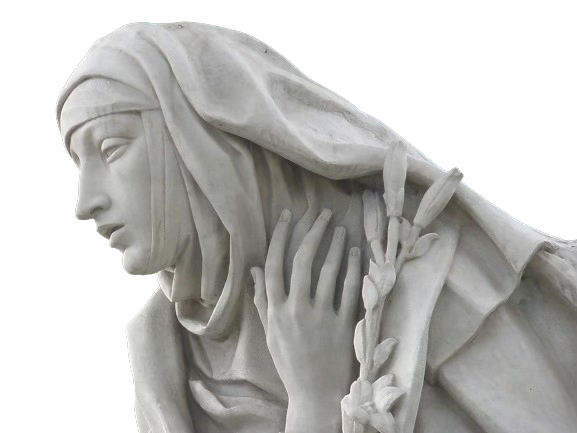If You Are What You Ought to Be
The history behind St. Catherine of Siena's most famous quote
“If you are what you ought to be, you will light a fire in all the world!"
This is one of St. Catherine of Siena’s most famous sayings, yet rarely is the source of the quote mentioned. We can read Caterina's Dialogue from cover to cover, scouring each page for a hint of her famous line, but we won't find the sentence anywhere. Where does it come from, and why is it so popular?
St. Catherine of Siena (Caterina in her native tongue) is best known for encouraging Pope Gregory XI to return to Rome, as well as for her unexpected role in medieval society and politics. Many people are familiar with her Dialogue,yet lesser known are her astounding letters.
Caterina was an avid writer, transcribing epistles to cardinals and popes (Gregory XI and Urban VI), nuns and friars, merchants and tradesmen, wives and even prostitutes. No one was immune to the beauty of her gift of eloquence. 382 of her letters survive, although we know by her references that she wrote many more. However, not many English-speaking people have read them all, in part because of limited availability. Beginning in 2000, Dominican sister Suzanne Noffke undertook the immense task of translating and publishing all of Caterina’s letters, and in 2008 she completed her task; yet sadly her the volume set is out of print, and it's very difficult to find copies—as well as quite expensive.
This is unfortunate, because it's through her letters that we truly get a sense of Caterina's personality, fiery spirit and blunt love for humanity.
On December 9, 1379 Caterina wrote a letter to one of her closest disciples, Stefano di Corrado Maconi. Stefano was a young man who, like Caterina, was born in 1347. He was also a local Sienese, and was so devoted to “Mamma Caterina” that he was widely mocked as being Caterinato (“Caterinated”). He acted as her chief scribe when they were together—which they often were, since Stefano traveled to Florence, Avignon and Rome with Caterina and her other disciples. When they were apart, Stefano was the disciple she knew she could count on to perform even the most difficult tasks.



